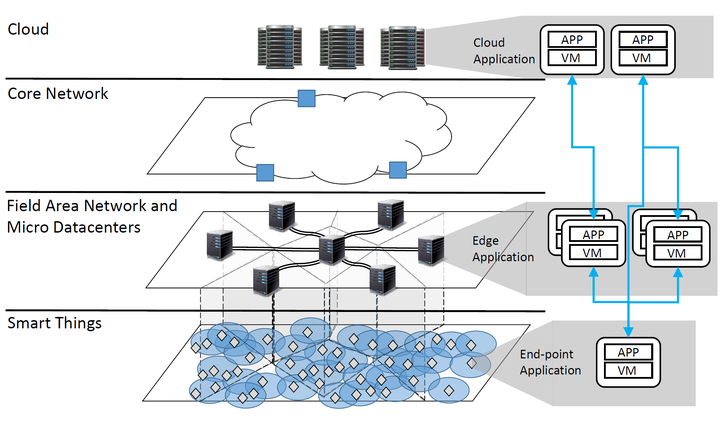 Proposed Decoupled Edge Computing Architecture: Zenith 😄
Proposed Decoupled Edge Computing Architecture: Zenith 😄Abstract
In the Internet of Things(IoT) era, the demands for low-latency computing for time-sensitive applications (e.g., location-based augmented reality games, real-time smart grid management, real-time navigation using wearables) has been growing rapidly. Edge Computing provides an additional layer of infrastructure to fill latency gaps between the IoT devices and the back-end computing infrastructure. In the edge computing model, small-scale micro-datacenters that represent ad-hoc and distributed collection of computing infrastructure pose new challenges in terms of management and effective resource sharing to achieve a globally efficient resource allocation. In this paper, we propose Zenith, a novel model for allocating computing resources in an edge computing platform that allows service providers to establish resource sharing contracts with edge infrastructure providers apriori. Based on the established contracts, service providers employ a latency-aware scheduling and resource provisioning algorithm that enables tasks to complete and meet their latency requirements. The proposed techniques are evaluated through extensive experiments that demonstrate the effectiveness, scalability and performance efficiency of the proposed model.